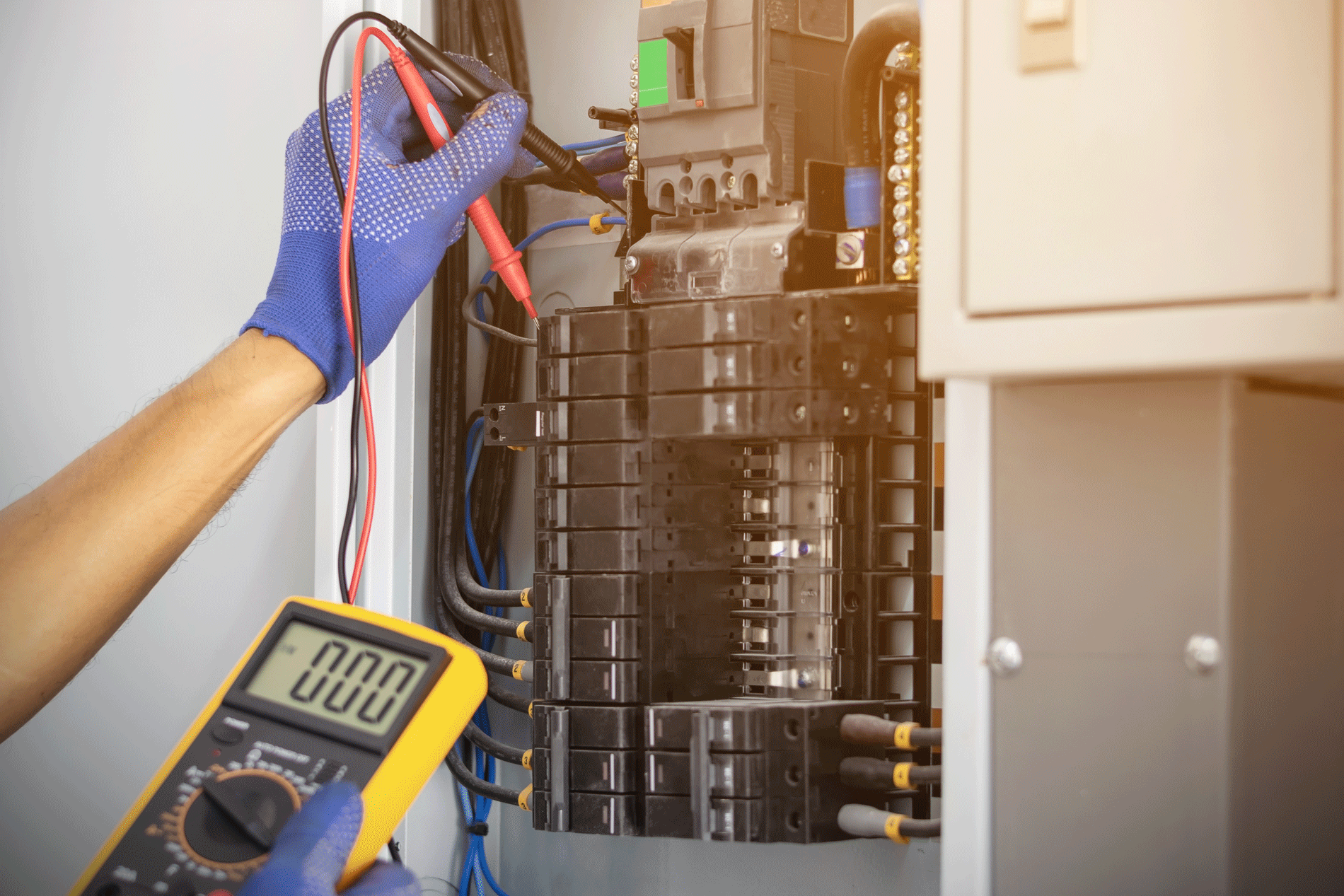As the temperature drops and winter settles in, we all rely more heavily on heating appliances and electrical systems. This is why yearly electrical safety checks are not just a routine task but an essential one to ensure your home or office is safe and cozy for you all winter long.
Understanding Electrical Systems
To appreciate the significance of yearly electrical safety checks, it’s essential to have a basic understanding of electrical systems. These intricate networks power our lives, from lighting up our homes and offices to keeping our appliances running smoothly. However, they can also pose risks if not properly maintained.
Common electrical hazards include:
- Faulty Wiring: Over time, wiring can deteriorate and become faulty, leading to exposed wires or loose connections, which can cause a fire hazard.
- Overloaded Circuits: As we add more devices and appliances to our homes or offices, our electrical circuits may become overloaded. This can lead to tripped circuit breakers or even electrical fires which can spread anywhere from 30 seconds to several minutes and completely engulf a building.
- Damaged Appliances: Appliances can develop faults or wear out over time, posing electrical risks if not addressed.
Seasonal Changes and Electrical Usage
Winter brings its unique set of challenges to our electrical systems. With the increased usage of heating appliances, lighting and other electrical devices, our homes or office buildings draw more power than usual. This heightened electrical load can put stress on the system, potentially leading to issues that need immediate attention.
For instance, heating appliances like space heaters, electric blankets and furnaces draw a significant amount of power. This can overload circuits if they are not in good working condition or if they are sharing circuits with other devices.
Additionally, the cold weather can cause contraction and expansion of electrical components, potentially exacerbating existing issues. All of these factors make winter a critical time for ensuring your electrical system is up to the task.
The Importance of Yearly Electrical Safety Checks
Now, let’s dive into why yearly electrical safety checks are crucial during the winter months.
1. Ensuring Safety in Your Building
First and foremost, your home or office building should be a place where people feel safe and comfortable. Electrical safety checks are a proactive way to identify potential hazards and ensure that your property remains secure.
Security systems and locks give you peace of mind against outside threats, which is why it’s just as important to make sure you have systems in place to make sure your property is safe from potential fire hazards.
A thorough inspection can uncover problems like exposed wires, damaged outlets or aging electrical panels. By addressing these issues promptly, you can prevent accidents that might lead to electrical shocks or fires.
2. Long-term Cost Savings
While investing in an annual inspection might seem like an expense, it can save you money in the long run. Here’s how:
- Early Detection: Identifying and addressing problems early can prevent them from becoming more extensive and expensive issues down the line.
- Energy Efficiency: A well-maintained electrical system operates more efficiently, reducing your energy bills. This is even more beneficial when running a larger commercial building or property.
- Avoiding Emergency Repairs: Emergency electrical repairs can be costly, especially if they occur during the winter when service may be in high demand.
3. Compliance with Safety Standards and Regulations
Staying compliant with local electrical codes is not just a matter of legality; it’s a matter of safety. Electrical codes and standards are designed to protect homeowners and business owners from electrical hazards. An annual inspection ensures your electrical system meets all required standards. This, in turn, keeps you and everyone in your home or business safe.
Signs That It’s Time for a Check
While it’s important to schedule yearly electrical safety checks, it’s also important to recognize when it’s time to schedule one outside of your yearly check. Here are some common signs that indicate your electrical system may need attention:
- Flickering Lights: If your lights frequently flicker or dim, it could be a sign of an electrical issue.
- Tripped Circuit Breakers: Frequent circuit breaker trips are a clear indication that something is overloading your electrical system.
- Warm Outlets: If any of your outlets feel warm to the touch or emit a burning odor, this is a cause for concern. Make sure to hover your hand slightly over the outlet the next time you go to plug in your computer or appliance.
- Electrical Shocks: If you or anyone in your household or office building experiences an electrical shock when touching an appliance or switch, it’s a serious sign of a problem.
Benefits of Hiring a Licensed Electrician:
- Expertise: Licensed electricians, like the ones at Cajun Electric, are trained to identify and address electrical issues accurately.
- Safety: Trained electricians have the necessary safety equipment and knowledge to handle electrical systems safely. Trying to DIY an electrical issue can cause serious harm or even death.
- Compliance: Licensed electricians ensure that all work complies with local electrical codes and standards.
- Peace of Mind: Professional inspections provide peace of mind, knowing that your home or building is safe and your electrical system is in good condition.
At Cajun Electric, it’s our mission to help you keep your home and office building safe and well-lit throughout the winter and beyond. By prioritizing electrical safety and investing in yearly inspections, you can enjoy a bright, cozy winter season without any worries.
If you have any questions, concerns or need assistance with your electrical needs, remember that Cajun Electric is just a call away! Our team of experts is here to ensure your building stays warm and safe, no matter the season.

